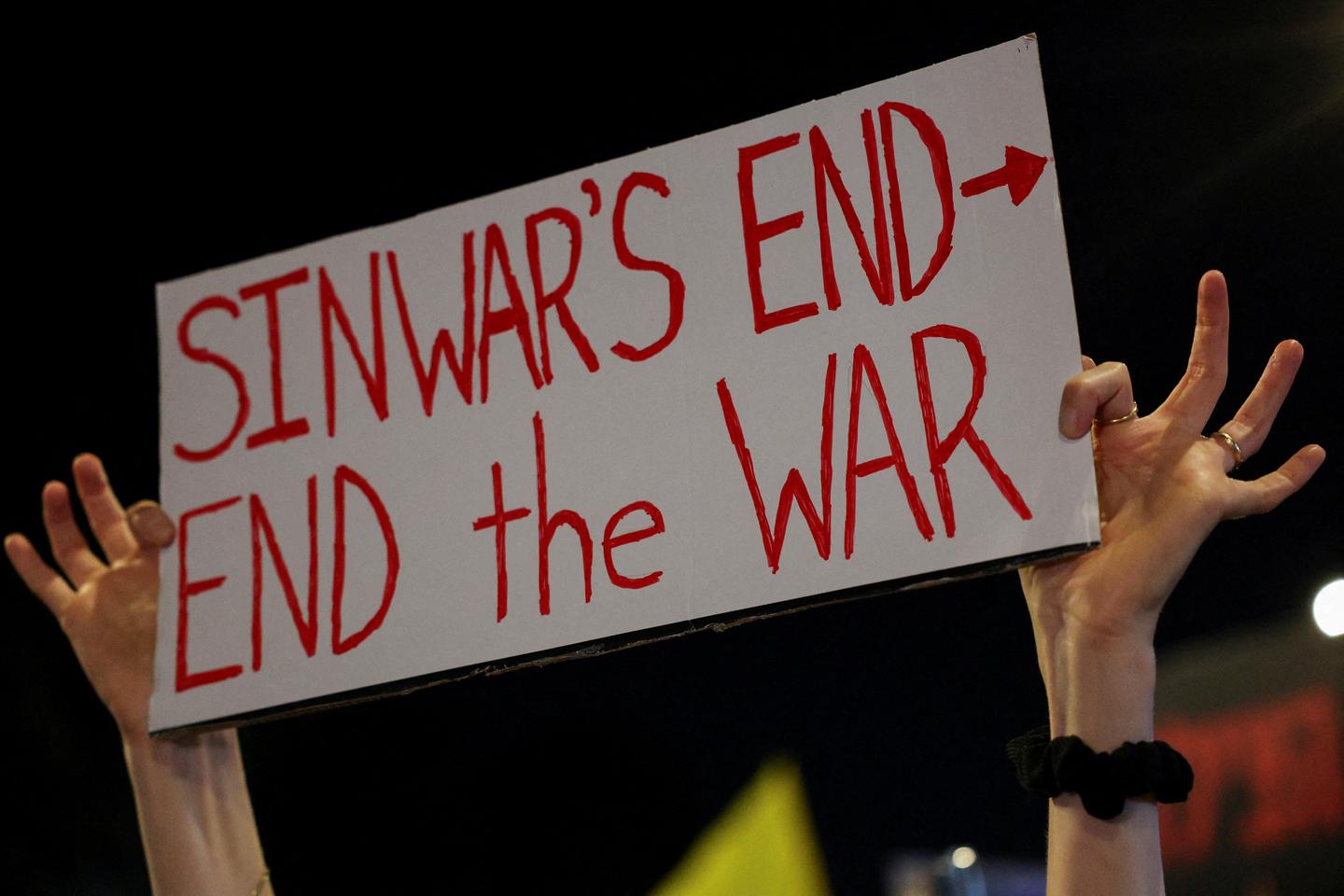


The death of Yahya Sinwar, killed by the Israeli army in southern Gaza, on October 17, has brought an end to a life path synonymous with carnage and desolation. He was the latest in a long list of Hamas leaders to be eliminated for having chosen the dead-end course of armed struggle and terrorism.
As the architect of the October 7 massacre of Israeli civilians, Sinwar had made several analytical errors. The barbarity of his forceful move temporarily united Israeli society, which he had thought was on the verge of breaking apart under the pressure of real divisions. His allies stuck to a minimum level of solidarity, far from the regional conflagration he had hoped for, even if Hezbollah has paid a high price for it: the decapitation of its leadership. The Iranian regime has also suffered slights, both in Syria and on its own soil, where another Hamas leader, Ismail Haniyeh, was assassinated on July 3.
Caught in the trap set by Sinwar's murderous rampage, and the atrocities committed on October 7, it was, in fact, Gaza's Palestinians who would pay the heaviest price. The narrow strip of land, which Israel has forbidden international press access to, after being suffocated for 17 years by an outrageous blockade, has been more ravaged by Israeli army bombings in the last year than it had ever been before. The Israeli army has killed tens of thousands of civilians and wounded tens of thousands more, although it is still difficult to assess the scale of this tragedy, which is unprecedented for the – already painful – history of the Palestinian people.
'The day after'
The military success that Israel and its prime minister, Benjamin Netanyahu, can legitimately claim is significant, but it is not enough. A ceasefire must be established, and the Israeli hostages still held in Gaza must be returned to their loved ones, while diplomacy has, so far, been more effective than force in securing the release of a large number of them, in November 2023.
Above all, Israel has still not been able to present a credible political vision for the "day after" that is beginning to take shape. The Palestinian militia organization's considerable weakening offers an opportunity, provided Israel breaks with unilateralism, which stands in the way of peace and Palestinians' legitimate rights.
To leave the parameters that led to this tragic year unchanged is to guarantee the next cycle of violence, which would be ever more devastating and ever more bloody. Those Palestinians who will turn 18 in 2025, in Gaza, have known nothing but the Islamist rule of Hamas, deprivation of their freedom, war and the decimation of their families by the Israeli army.
If nothing is done, the perpetuation of the conflict will, therefore, be written in stone. It's not just a matter of Gaza, a land wracked by agony, whose reconstruction will rapidly become a nightmare if no pressure is brought to bear on the Israeli authorities, to force them to loosen up on the tight suffocation of the enclave. A low-key war is also being waged in the occupied West Bank, which is under increasing pressure from Israeli colonization and its process of annexation. It is fanned by the supremacist and messianic wing of the coalition led by Netanyahu. A decade of international disengagement has produced what we know today. There is therefore an urgent need to abandon the wait-and-see attitude that has only benefited extreme actors.
